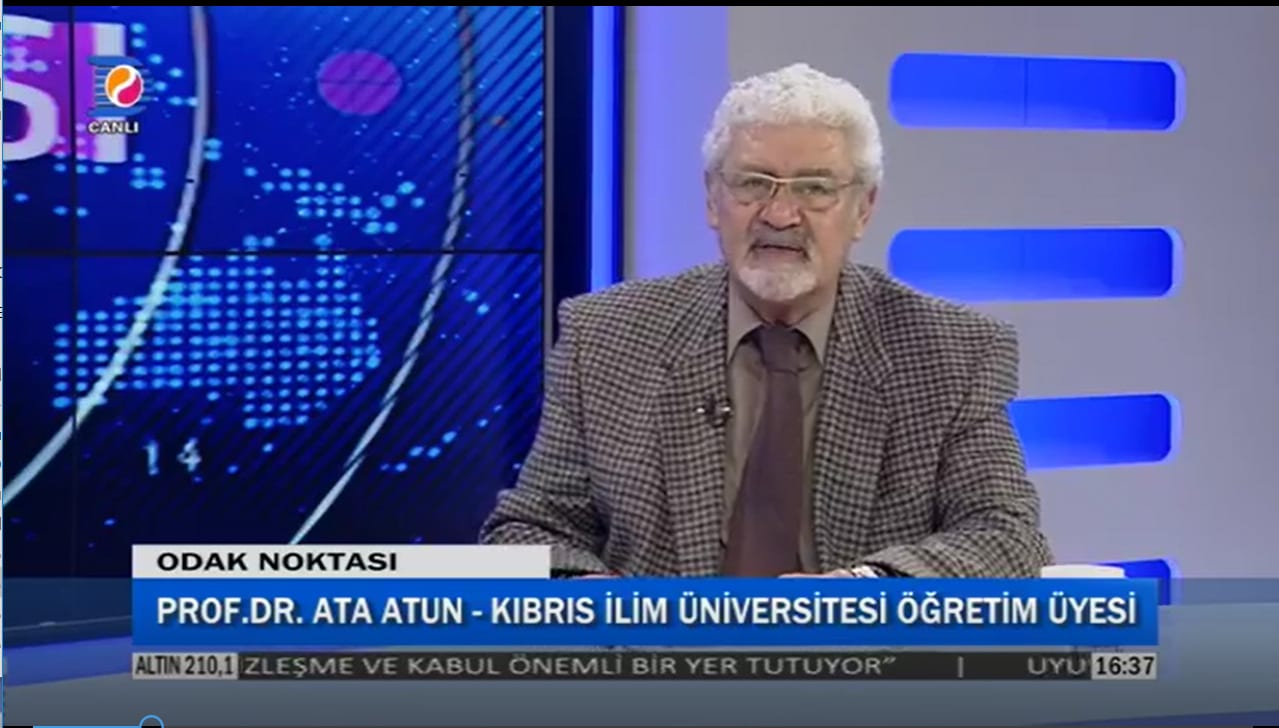Actually, it would have been a lot better had the title of this article been “ Which Solution Plan did the Greek Cypriots accept?”
As a matter of fact, so far there has been no plan that has been accepted or approved by the Greek Cypriots that would ultimately lead to a solution regarding the Cyprus issue.
The Greek Cypriots have never had the intentions of saying “yes” to a plan that would give the Turkish Cypriots equal rights and hence a partnership status on the island, and they have never had and never will have such thoughts crossing their minds.
In 1959, when Makarios was signing the London and Zurich Treaties which in fact had laid the foundations for the 1960 Republic of Cyprus Constitution and defined the Turkish Cypriots as one of the founders and partners of the new Republic, he had said “Zurich and London Treaties will form the first step toward achieving Enosis.”
What he had actually meant with this statement was, “ I am signing this Treaty involuntarily, and my mission is to achieve Enosis.” As a matter of fact, he had launched deadly attacks on the Turkish Cypriots three years after signing this Treaty so as to annihilate the Turkish Cypriots on the island of Cyprus.
In 1878 the British leased Cyprus from the Ottoman Empire. Following this, the Greeks and Greeks Cypriots came up with the belief that the British would soon let them have full control over the island because both the British and the Greeks shared the same religion, i.e., Christianity, so they started to press the British to transfer the entire Island to them.
Until 1878, the population ratio between the two communities was mostly 1:1 and at times 1:2, however, from the beginning of the 20th century, the Greek Cypriots brought many Greek immigrants from Anatolia and Greece to the island, and hence they changed the ratio in their favor. First it was 1:3, but later on they managed to make it 1:4. With this steady increase in Greek population on the island, they started working on their Enosis ideals, which meant annexing the island to Greece. They wanted a “Unified Greek State” to rule the island and thus started the Greek atrocıties toward the Turkish Cypriots.
In 1945, when World War Two ended, both the UN and the USA brought it to the attention of the member states that Colonialism should no longer be practiced; that all Colonies should become independent states. This meant a new period would begin on the Island of Cyprus.
England had already started talking about a bi-communal governing system on the island, and in 1947, introduced a plan for a new state that would consist of two peoples, i.e., the Turkish Cypriots and the Greek Cypriots.
The Greek Cypriots immediately rejected this plan known as the “Lord Winster Plan,” as it recognized the Turkish Cypriot existence.
13 years after rejecting the first “State of Cyprus Plan,” the Greek Cypriots involuntarily accepted the 1960 Republic of Cyprus Constitution based on the assumption that they would achieve Enosis sooner this way. Had they not approved the 1960 Constitution, the island would again have been divided somewhere alongside the Green Line, and would have gotten the immediate approval of the UN.
In order to avoid the legitimate partition of the island and to confiscate the entire territory, the Greeks unwillingly said, “yes” to the 1960 Constitution. Since then and up until the year 2012, the Greek Cypriots have said “No” to 52 different plans that would have eventually led to a solution of the Cyprus problem.
Greek Cypriots have no substantial plans for a solution other than declaring a Unified Greek Cypriot State, which would give them the right to self-determination, and eventually achieve Enosis.
It is for this reason that the Greek Cypriots have been intentionally trying to make all the negotiations continue open ended and wait till the Turks become weak economically, politically and militarily because under such circumstances, Turkey will not have the power to intervene and send military troops to the Island.
However, as the saying goes, there is always the possibility of losing a diamond while collecting stones. Losing the whole island is also a probability while trying to get hold of it in its entirety. This is just one of the probabilities of the mathematics based “Game Theory.”
Ata ATUN
September 11, 2012



